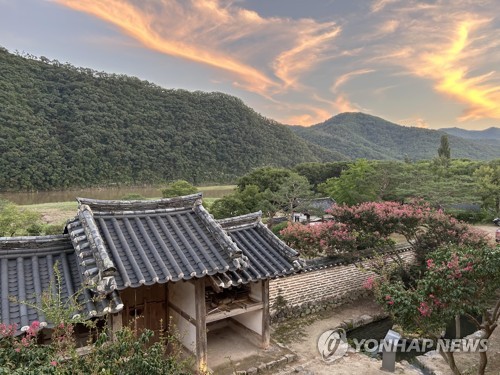- California Assembly OKs highest minimum wage in nation
- S. Korea unveils first graphic cigarette warnings
- US joins with South Korea, Japan in bid to deter North Korea
- LPGA golfer Chun In-gee finally back in action
- S. Korea won’t be top seed in final World Cup qualification round
- US men’s soccer misses 2nd straight Olympics
- US back on track in qualifying with 4-0 win over Guatemala
- High-intensity workout injuries spawn cottage industry
- CDC expands range of Zika mosquitoes into parts of Northeast
- Who knew? ‘The Walking Dead’ is helping families connect
KBS drama team faces police probe over UNESCO heritage damage
Police will investigate a drama production team from public broadcaster KBS for allegedly hammering nails at a UNESCO World Heritage site to hang a prop, officials said Friday.
Gyeongbuk Provincial Police said a complaint was filed earlier in the day by a person known as a citizen of Andong, North Gyeongsang Province, accusing the team of causing damage to Byeongsan Seowon in the city.

The city of Andong, about 190 kilometers southeast of Seoul, said Thursday it was considering legal action after discovering five nail marks, each approximately 1 centimeter deep and 2-3 centimeters wide, left on Mandaeru Pavilion, a national treasure located within the site.
The nails had been used to hang six lanterns during a drama shoot on Dec. 30.
In response, KBS issued an apology and pledged to actively address the damage, repair the site and implement measures to prevent similar incidents in the future.
The police agency said it will transfer the case to the Andong Police Station after reviewing the complaint.
Byeongsan Seowon, part of a group of nine Neo-Confucian academies from the Joseon Dynasty (1392-1910), was inscribed on the UNESCO World Heritage List in 2019.
These academies, situated in natural settings near mountains and water sources, served as venues for scholars to study, engage with the environment, and cultivate their minds and bodies.
UNESCO has recognized the “seowons” for illustrating “a historical process in which Neo-Confucianism from China was adapted to Korean conditions.”











